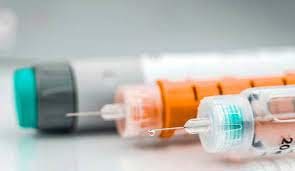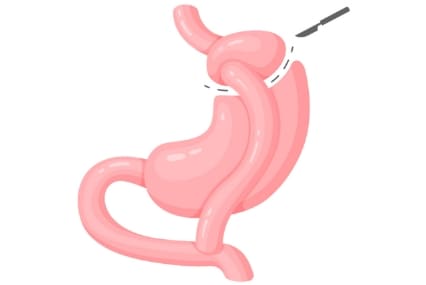 SADI surgery at JourneyLite is a highly effective bariatric surgery for individuals seeking significant weight loss. As a refined version of the traditional duodenal switch, SADI bariatric surgery, or Single Anastomosis Duodeno-Ileal Bypass, stands out for its less invasive approach and notably quicker recovery times. To learn about SADI bariatric surgery and whether it’s a good fit for you, read on.
SADI surgery at JourneyLite is a highly effective bariatric surgery for individuals seeking significant weight loss. As a refined version of the traditional duodenal switch, SADI bariatric surgery, or Single Anastomosis Duodeno-Ileal Bypass, stands out for its less invasive approach and notably quicker recovery times. To learn about SADI bariatric surgery and whether it’s a good fit for you, read on. on this page
How SADI Surgery Revolutionizes Weight Loss
SADI surgery, previously known as SIPS, is at the forefront of modern bariatric surgery, offering a novel approach to sustainable weight loss. It’s crucial to understand its procedure, benefits and distinct approach compared to traditional weight loss surgeries. The SADI surgery, a modification of the traditional duodenal switch, simplifies the process by creating a single anastomosis between the stomach and the small intestine. By reducing the length of the intestines involved in nutrient absorption, the SADI procedure facilitates a reduction in calorie intake and enhances weight loss outcomes. This alteration not only facilitates significant and sustainable weight loss but also minimizes the risk of complications often associated with more complex bariatric procedures. Contact JourneyLiteHow SADI Surgery Causes Weight Loss
 SADI surgery achieves weight loss through both restrictive and malabsorptive mechanisms. It limits food intake, while the rerouting of the small intestines decreases calorie absorption. This dual approach enhances the effectiveness of the procedure in combating obesity and its related health issues, such as type 2 diabetes, hypertension and sleep apnea. The preservation of the pylorus in SADI surgery plays a pivotal role in maintaining the natural stomach functions and reducing post-surgical complications like dumping syndrome and suffering from nutritional deficiencies. Read on to learn who SADI surgery, also known as SIPS surgery, is best suited for.
SADI surgery achieves weight loss through both restrictive and malabsorptive mechanisms. It limits food intake, while the rerouting of the small intestines decreases calorie absorption. This dual approach enhances the effectiveness of the procedure in combating obesity and its related health issues, such as type 2 diabetes, hypertension and sleep apnea. The preservation of the pylorus in SADI surgery plays a pivotal role in maintaining the natural stomach functions and reducing post-surgical complications like dumping syndrome and suffering from nutritional deficiencies. Read on to learn who SADI surgery, also known as SIPS surgery, is best suited for.Ideal Candidates for SADI Bariatric Surgery
 The SADI procedure represents a beacon of hope for individuals who have found themselves at a crossroads, seeking a lasting solution to significant weight challenges. Ideal candidates are those for whom conventional methods like diet, exercise or previous bariatric surgeries have not yielded the desired results. Ideal candidates fit the following criteria:
The SADI procedure represents a beacon of hope for individuals who have found themselves at a crossroads, seeking a lasting solution to significant weight challenges. Ideal candidates are those for whom conventional methods like diet, exercise or previous bariatric surgeries have not yielded the desired results. Ideal candidates fit the following criteria:- High Body Mass Index (BMI): Typically, candidates have a BMI of 40 or higher.
- Unsuccessful Weight Management: SADI surgery is ideal for individuals who have not seen success with traditional weight loss methods.
- Obesity-Related Comorbidities: Ideal candidates often suffer from health issues related to their obesity that could be improved or resolved with weight loss.
- Willingness to Follow Nutritional Guidance: Candidates must be committed to adhering to the dietary guidelines and follow-up care needed for best outcomes.
The Benefits of SADI Surgery
SADI surgery offers numerous benefits for individuals struggling with obesity and related health conditions. This procedure not only aids in significant weight loss but also contributes to the improvement of overall health. Here are the key benefits detailed with specific examples and bullet points for clarity:- Significant Weight Loss: SADI surgery facilitates substantial weight loss by reducing the stomach’s size and the body’s ability to absorb calories.Patients often lose up to 70-80% of their excess body weight within the first 12 to 18 months post-surgery, translating to dramatic health and lifestyle improvements.
- Improvement in Obesity-Related Conditions: The procedure has positively impacted various obesity-related health issues.A significant number of patients experience remission of type 2 diabetes, with improved blood sugar levels. Conditions such as hypertension, sleep apnea and hyperlipidemia show marked improvement, reducing the need for related medications.
- Enhanced Quality of Life: SIPS surgery improves mental and emotional well-being beyond physical health improvements.A patient may need to take daily multivitamins, calcium supplements and protein-rich foods like chicken or fish to prevent nutritional deficiencies. Walking 30 minutes daily and other physical activities are encouraged to support weight loss.
- Reduced Risk of Long-Term Health Issues: Patients lower their risk of developing obesity-related conditions by achieving and maintaining a healthier weight.The risk of developing severe health conditions such as heart disease, stroke and certain cancers is significantly reduced, contributing to a longer life expectancy and better quality of life.
- Sustainable Weight Loss and Maintenance: SADI surgery, combined with lifestyle changes, offers a sustainable solution to weight loss, with many patients maintaining most of their weight loss long-term.With adherence to dietary guidelines and regular physical activity, patients can maintain significant weight loss 5 to 10 years post-surgery, distinguishing SIPS surgery from non-surgical weight loss methods that often result in weight regain.
How SADI Surgery Works
SADI surgery is a form of bariatric surgery designed to help patients lose weight by altering the digestive system’s structure and function. Here are the key operational details, highlighted with specific examples and bullet points for clarity:- Surgical Technique: SADI surgery involves creating a single anastomosis or connection between the stomach and the lower part of the small intestine (the ileum), bypassing a significant portion of the intestine to reduce calorie absorption.The surgeon removes approximately 2/3 of the stomach along its greater curvature, creating a sleeve. Then, instead of the standard duodenal switch’s two connections, a single loop of the ileum is attached directly to the stomach, approximately 250-300 cm from the ileocecal valve.
- Duration and Recovery: The procedure typically lasts between 2 to 3 hours and is performed under general anesthesia. Recovery in the hospital usually spans 2 to 3 days, with most patients returning to normal activities within 2 to 4 weeks.A patient might be discharged 72 hours post-operation, with follow-up visits scheduled for one week, one month and then every three months for the first year to monitor recovery and nutritional intake.
- Post-Operative Care: After SADI surgery, patients follow a phased diet plan, starting from liquids to pureed foods and gradually to solid foods, over several weeks.
- Long-term Lifestyle Changes: Significant lifestyle changes are required for sustaining weight loss and health improvements. This includes adhering to a balanced diet, regular exercise and lifelong vitamin supplementation.A patient may need to take daily multivitamins, calcium supplements and protein-rich foods like chicken or fish to prevent nutritional deficiencies. Walking 30 minutes daily and other physical activities are encouraged to support weight loss.
Book Your SADI Surgery Consult Today
Booking your SADI surgery consult with JourneyLite is the first step in your transformative health journey. Our dedicated team ensures a smooth transition towards your weight loss goals. Shape your future towards a healthier you. Schedule Your Surgery TodayFrequently Asked Questions About SADI Surgery
Navigating your path to SADI surgery may raise several questions. The team at JourneyLite is here with answers to your most pressing inquiries, covering everything from procedure details to recovery expectations.How Does SADI Surgery Differ from Traditional Bariatric Surgeries?
Unlike traditional bariatric surgeries, SADI involves a single anastomosis, making it less invasive with a potentially quicker recovery. It combines aspects of sleeve gastrectomy and intestinal bypass, offering substantial weight loss benefits with fewer complications.Who is an Ideal Candidate for SADI Surgery?
Ideal candidates for SADI surgery are individuals with a BMI of 40 or higher. It also is meant for those with a BMI of 35 or higher who also suffer from obesity-related health conditions such as diabetes, hypertension or sleep apnea and have not achieved significant weight loss through diet and exercise alone.Will I Need to Follow a Special Diet After SADI Surgery?
After SADI surgery, patients must adhere to a specific dietary plan that begins with liquid foods and gradually progresses to solid foods over several weeks. In the long term, patients must maintain a balanced diet and take vitamin and mineral supplements to prevent deficiencies.Are There Any Risks Associated with SADI Surgery?
As with any surgical procedure, SADI surgery carries risks, including nutritional deficiencies, gastrointestinal complications and risks associated with anesthesia. However, these risks are minimized with careful surgical planning, patient education and post-operative care.Testimonials
 Hear from JourneyLite patients who have achieved their weight loss goals and transformed their lives thanks
to stomach bypass surgery.
Hear from JourneyLite patients who have achieved their weight loss goals and transformed their lives thanks
to stomach bypass surgery.



















